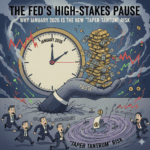London — European stocks concluded the week with a slight downturn as investors analyzed earnings reports and central bank decisions.
Stoxx 600 Index Ends 0.2% Lower Amidst Negative Trend in Most Sectors
The Stoxx 600 index experienced a 0.2% decline, with the majority of sectors ending in the negative territory. Notably, media stocks led the losses, experiencing a downturn of around 1.3%.
European Markets and Bank of Japan’s Policy Shift
On Friday, the Bank of Japan decided to maintain its negative interest rate, but it surprised the market with a new approach. The bank announced its decision to allow “greater flexibility” in the target range for 10-year Japanese government bond yields. This move was interpreted by some analysts as a signal for an eventual policy shift, although the extent of the shift remains unclear.
Under the new policy, Japan’s strict yield curve control will now permit movements in the range of approximately plus and minus 0.5% without “rigid limits.” Additionally, the central bank offered to purchase 10-year bonds at 1% every business day through fixed-rate operations, effectively expanding its tolerance by another 50 basis points.
Asia-Pacific Markets React to Bank of Japan’s Unexpected Move
The Bank of Japan’s unexpected policy shift had a significant impact on Asia-Pacific markets. Japan’s Nikkei 225 experienced a decline of over 2%, while the yen gained strength, and the 10-year bond yield rose to its highest level since September 2014.
Given Japan’s position as the world’s largest creditor nation, global markets have always been sensitive to Japan’s monetary policy moves.
European Central Bank’s Rate Hike and Inflation Concerns
The Bank of Japan’s policy shift came after the European Central Bank delivered an expected 25-basis-point rate hike. However, the ECB gave few clues about the extent of future rate increases, although it emphasized that inflation is “still expected to remain too high for too long.”
Mixed GDP Readings from Major Euro Zone Economies
Regarding economic data, gross domestic product (GDP) readings from some of the largest economies in the euro area provided a mixed picture. The French economy expanded by 0.5% compared to the previous quarter, showing an improvement from 0.1% growth. However, Germany’s economy stagnated during this same period. Meanwhile, Spain’s growth rate stood at 0.4%, slightly lower than the previous quarter’s 0.5% growth.
Positive Performance on Wall Street
Across the Atlantic, US stocks saw gains on Friday. The Dow Jones Industrial Average and S&P 500 were set to close their third consecutive winning week as a closely watched measure of inflation by the Federal Reserve fell to its lowest level in nearly two years.
The markets continue to watch closely for any further policy shifts from central banks, both in Europe and around the world, as economic indicators fluctuate in response to various global events and monetary decisions.















